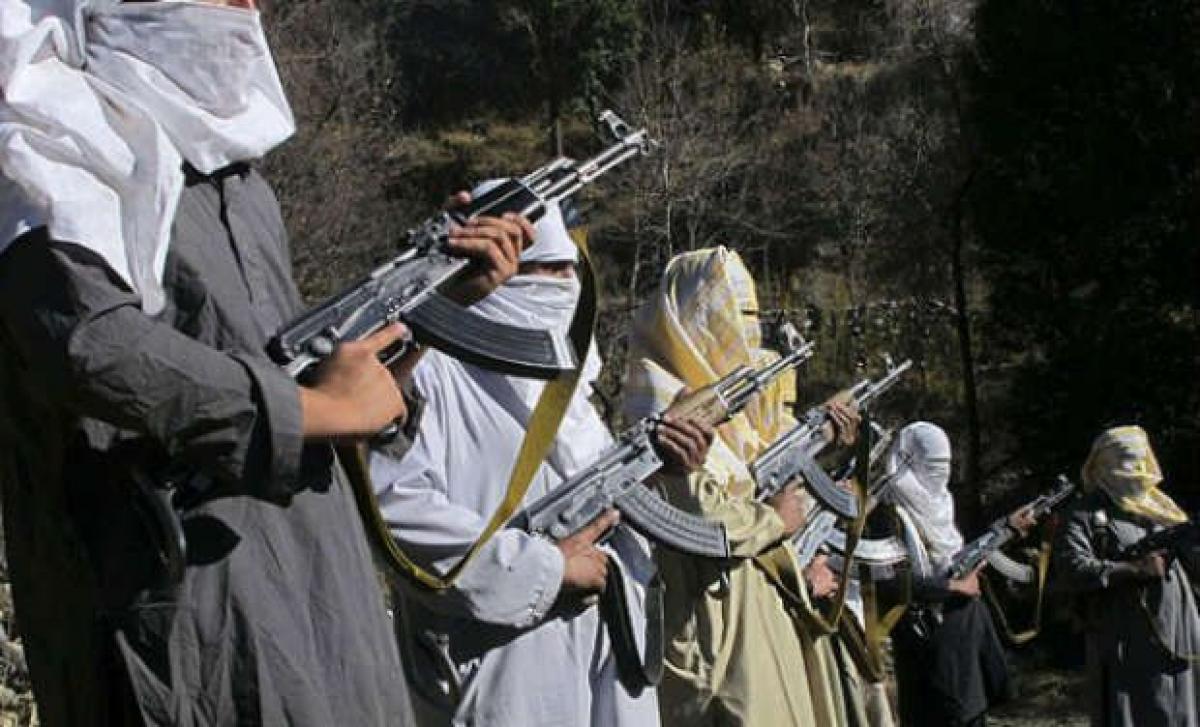Live
- Temple affairs a big task for EOs while few enjoy H.O. cushy stints
- RTA flounders on despatch of documents to motorists in city
- Police destroy ganja plantation
- UBI gesture to 3 welfare hostels
- Overwhelming response to Vijayawada Marathon
- Public Garden stepwell rots in apathy, walkers raise a stink
- Dinakar to send report to CM for justice to victims
- GHMC wakes up from slumber, out to tame stray dog menace
- Victoria Kjaer Theilvig: Denmark’s First Miss Universe Winner Makes History
- Health minister for action against ragging offenders
Just In

x
Highlights
State-sponsored cross-border terrorism is of particular concern, India has told the UN as it called upon the world community to have zero tolerance towards those who aid and abet terrorist acts and provide safe havens to their perpetrators, in a veiled attack on Pakistan.
State-sponsored cross-border terrorism is of particular concern, India has told the UN as it called upon the world community to have zero tolerance towards those who aid and abet terrorist acts and provide safe havens to their perpetrators, in a veiled attack on Pakistan.
.jpg)
"Terrorism has emerged as the most serious scourge of our times and endangers international peace, security and prosperity," First Secretary in the Indian Mission to the UN Mayank Joshi said at a session titled 'Crime Prevention and International Drug Control' at the Third Committee yesterday. He also noted that "state-sponsored cross-border terrorism is of particular concern to India".
Joshi said the international community must have a policy of zero tolerance towards terrorism and "towards those who aid and abet terrorist acts and provide safe havens to their perpetrators".
"Any country that allows the perpetrators of dastardly terrorist acts against innocent people, poses a serious threat to all nations," Joshi said in an apparent reference to Pakistan.
He stressed that it is high time for the international community to demonstrate the necessary political will and conclude the Comprehensive Convention on international terrorism to strengthen the normative framework against the increasingly sophisticated and globalised terrorist challenge.
"Increasing threats of cybercrime have the potential of being even more lethal than conventional wars and calls for national capacity building, technical assistance and global cooperation and response.
"Use of advanced information technology by terrorists has to be met with a global response," he said.
India strongly advocates that effective and strengthened crime prevention and criminal justice institutions are the cornerstone for establishing rule of law and are essential for peace, progress and prosperity of nations and successful implementation of the Agenda 2030 for sustainable development, he said.
Joshi underscored that the need of the hour is not to dilute the Drug Conventions, but to strengthen their implementation in their spirit and address the drug problem on the basis of principle of common and shared responsibility.
The Special Session at the General Assembly next year is a unique and valuable opportunity to take stock of the achievements and challenges in addressing the world drug problem as envisaged by 2019.
He pointed out that India is in the process of finalising its first national policy for drug demand reduction.
The government has also established a monitoring committee to bring the New Psychoactive Substances (NPS), which now number over 540, and synthetic drugs, under control.
India is also moving towards an 'Online regulatory regime' aimed to better serve the victims of drug abuse and patients in need of relief, he said.

Next Story
More Stories
ADVERTISEMENT
© 2024 Hyderabad Media House Limited/The Hans India. All rights reserved. Powered by hocalwire.com







